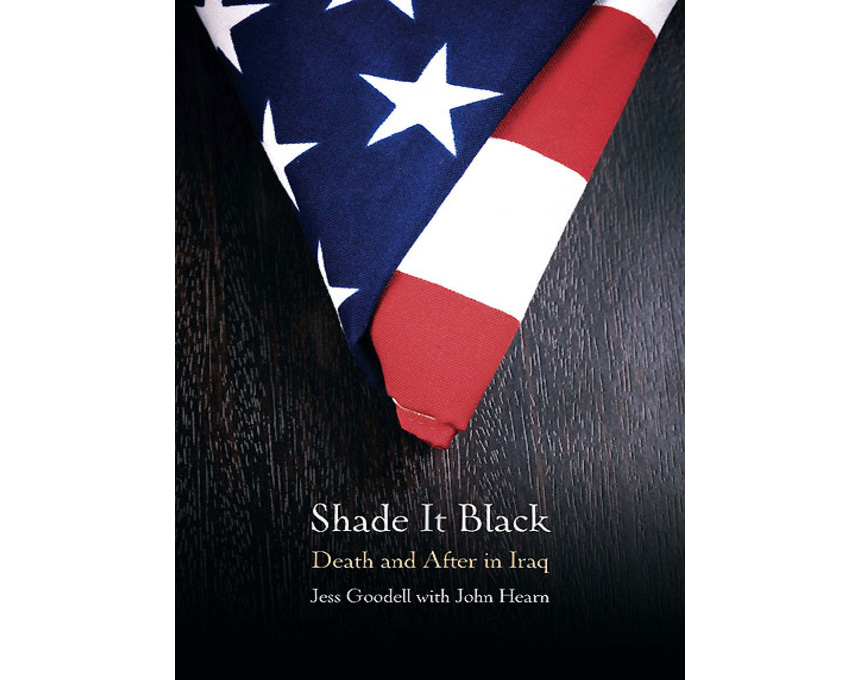Earlier this week, NPR ran an interview with Jess Goodell, author of the new memoir Shade it Black: Death and After in Iraq. The new book is Goodell’s account of her time as a Marine working in the Mortuary Affairs Unit in Iraq in 2004. Terry Gross interviewed Goodell in a segment entitled Death and After in Iraq: Memoir of a Mortuary, which you can listen to here.
The Mortuary Affairs Unit is the platoon tasked with recovering and processing the remains of fallen troops. Out in the field, Goodell and her unit would recover bodies and body parts and bring them back to base for further processing. Then they would prepare the remains for shipping back home. Back at base, Goodell’s job was to document identifying marks on the body like scars or tattoos, etc. The next step involved going through pockets of the dead soldiers to recover anything that could be given back to the family. In an excerpt from the book, Goodell writes:
He gave us step-by-step instructions. “Roll him over to document his wounds.” We may have known that a Marine was hit by bullets or a grenade, but we may not have known where. But when we tried to turn him over, we couldn’t. Rigor mortis was setting in and he was already beginning to stiffen, except for his waist, which was like a pivot point. Even when we strained to turn him over, we could not. It was awkward and we were silent except for The Sir’s slow, calm, firm instructions. “C’mon guys, you were trained on this and you know what to do,” he reassured us. And so, eventually, we did it. “Okay,” The Sir said, “now write down any distinguishing marks, any tattoos.” So we did. “Now, write down which body parts are missing and shade the missing parts black on the outline of the body.” So we did. We followed The Sir’s directions, marking the wounds, drawing the tattoos, shading the missing parts black. We had to be told throughout what to do next and how to do it.
We don’t yet have a copy of the book at my library, so I have not had a chance to read it. Publisher’s Weekly’s review is here. However, it looks like an interesting read not only for Goodell’s account of her time in the Mortuary Affairs Unit, but her experiences with the brutal and sexist culture of the U.S. Marine Corps. The NPR interview touches a bit upon this aspect of Goodell’s experience as well.
As the author talks about being diagnosed with PTSD, it struck me that perhaps the underlying factors are not only related to the handling of corpses, but the objectification and degradation of her own body as well. In the interview, her measured, almost dispassionate voice made me wonder if parts of her own body and mind had died in Iraq, not unlike the soldiers she was tasked with recovering. The coping mechanisms that the soldiers employ without even really knowing that they are doing so—the turning inward, the antisocial behavior—mask this pain quite well, at least for a while it seems.
At the end of the NPR interview, Goodell talks about her decision to study psychology and her desire to help other soldiers with PTSD, citing the need for more counselors who had personally experienced serving in Iraq.
